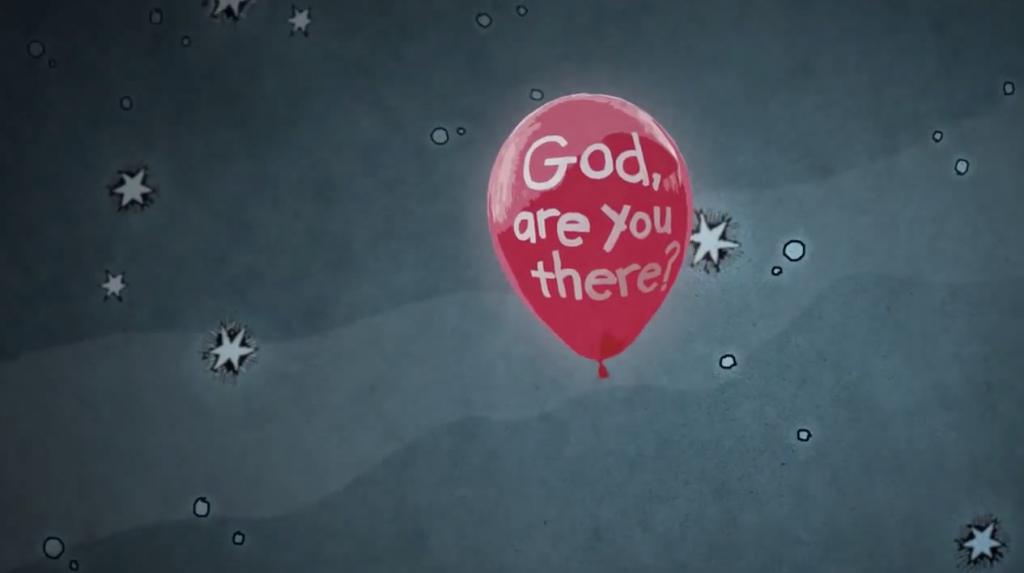If you have been a Christian for very long, I’m sure you have experienced what many of the great saints throughout history have referred to as “the ministry of God’s absence.” It’s a season (weeks, months or even many years) where God seems distant – far off and uninvolved in our day-to-day lives. I’ve faced my own seasons of God’s “seeming absence” throughout my 42 years of walking with Christ.
I was helped along the way by reading C.S. Lewis’ classic book, The Screwtape Letters. Lewis talks about how it is during those “trough periods” (i.e. God’s seeming absence) that our faith has the potential to grow its deepest. And it is during those “troughs” that God is actually doing some of his greatest work in our character (though mostly unknown to us).
In his book, Lewis tells of how Satan advises his minions (demons) that at the beginning of a believer’s spiritual life he may sense the closeness of God’s presence, which he describes as a dangerous state that demons will have few weapons to counter.
Later, though, many opportunities against the Enemy (God) arise. Listen to how Lewis portrays the importance of those “trough” times in a believer’s life (underlines and bold mine):
“It is during such trough periods, much more than during the peak periods, that it is growing into the creature He [God] wants it to be. Hence the prayers offered in the state of dryness are those that please Him best… He (God) wants them to learn to walk and must therefore take away His hand; and if only the will to walk is really there He is pleased even with their stumbles. Do not be deceived, Wormwood. Our cause is never more in danger than when a human, no longer desiring, but still intending, to do our Enemy’s (God’s) will, looks round a universe from which every trace of Him seems to have vanished, and asks why he has been forsaken, and still obeys.”
Finally, here are a few more Quotable Quotes that I have come across in the past few weeks…
“Nobody gets through a broken world unbroken.” (Ed Stetzer)
“Many Christians are so intent on doing something for God that they forget God’s main work is to make something of them.” (Jim Elliot – Missionary)
“Because of the gospel, I no longer live for approval; I live from approval.” (Dave Harvey)
“Let nothing be said about anyone unless it passes through the three sieves: Is it true? Is it kind? Is it necessary?” (Amy Carmichael)
“Before God uses a man greatly, he must first bruise him deeply.” (A.W. Tozer)
“The more I learn about God, the more aware I become of what I don’t know about him.” (R.C. Sproul)
“Hope can see heaven through the thickest clouds.” (Thomas Brooks)
“The Christian life is not one of attained perfection but ongoing purification.” (Joe Thorn)
“To be a burden-bearer is a great ministry. It is something that every Christian should and can do. It is a natural consequence of walking by the Spirit. It fulfils the law of Christ. ‘Therefore’, wrote Martin Luther, ‘Christians must have strong shoulders and mighty bones’—sturdy enough, that is, to carry heavy burdens.” (John R.W. Stott)
“The commands of God are given, not to rob me of joy, but lead me into the fullness of joy.” (Matt Chandler)
“There is no life so deeply and tragically sinful that it’s beyond the reach of God’s amazing rescuing grace.” (Paul Tripp)
“The most important daily habit we can possess is to remind ourselves of the gospel.” (C.H. Spurgeon)
“I don’t want to be a comfort-seeking, entertainment-addicted, security-craving, approval-desiring Christian.” (John Piper)
“The greater our progress in theology, the simpler and more child-like will be our faith.” (J. Gresham Machen)
“When we cease to worship God, we do not worship nothing. We worship anything.” (G.K. Chesterton)
“The great thing to remember is that, though our feelings come and go, His love for us does not.” (C.S. Lewis)
“Christian giving is to be marked by self-sacrifice and self-forgetfulness, not by self-congratulation.” (John Stott)
“When a man truly sees himself, he knows nobody can say anything about him that is too bad.” (D. Martyn Lloyd-Jones)
“Books are the quietest and most constant of friends; they are the most accessible and wisest of counselors, and the most patient of teachers.” (Charles W. Eliot)
